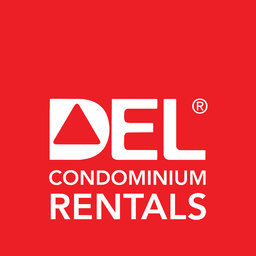
24 Feb The New Landlord’s Quick Guide To Tax Time
Perhaps you just purchased a new condominium unit with hopes of renting it out for extra passive income this year. As a new landlord, you need to know what your tax responsibilities are. With tax season coming up soon, this guide will help you figure out what to do and make sure you’re ready.
Keep Track of Your Income and Expenses
The first thing you need to do to get ready for tax time is to keep track of all the money you make and spend on your rental property throughout the year. This includes things like rent, advertising, upkeep, repairs, improvements, and more. If you keep good records, it will be easier to figure out how much of your income is taxable at the end of the year.
If you are working with a property management company, be sure that the company you are working with keeps track of all expenses and income.
New Vacant Home Tax
A new tax called the “Vacant Home Tax” has been put in place in Ontario to attempt to make housing more affordable and available. Under this tax, homeowners who let their homes sit empty for more than six months in a year will have to pay an extra tax. The goal of this tax is to get people to live in their own homes or rent them out so that there is more housing for rent. At tax time, it’s important to remember this tax for your rental property.
RELATED: What To Know About The New Vacant Home Tax
Know What You Can Deduct From Taxes
Landlords can deduct a number of things, such as mortgage interest, property taxes, and insurance premiums. Make sure you know what expenses you can write off and keep your receipts or other proof to back up your claims.
Report What You Earn From Rental Income
All rental income, whether earned in Canada or elsewhere, must be reported on your tax return. Make sure to report all of your rental income, including any security deposits as well.
File Your Taxes On Time
In Canada, you have until April 30th each year to file your taxes. If you work for yourself, you have until June 15 to file, but you have until April 30 to pay any taxes you owe. If you don’t pay by the due date, you may incur additional fees and interest.
Understand The NR-4 – Non-Resident Reporting Requirements
If you are not a resident of Canada and you earn a rental income from a Canadian property, you could be subjected to having to withhold a non-resident tax at 25% on gross rental income. This must be paid to the CRA on or before the 15th of the following month for that rental. Failure to communicate and file this to the CRA will result into penalties and interest on that amount.
Hire A Tax Professional Familiar With Rental Property Management
If you are unaware of taxes related to becoming a landlord, you may want to consider hiring a tax professional. They can help you figure out what you have to do and make sure your taxes are done right and on time.
A Little Planning Goes A Long Way
Overall, tax time can be confusing for new landlords, but with a little planning, it can be a smooth and stress-free process. Make sure you keep track of your income and expenses, understand your deductions, and file your taxes on time. Don’t be afraid to ask for help from a tax professional and accountant if need be. They can help you make sure you’re following all the rules and laws about taxes.
For A Fully Managed Solution
If you are looking for more of a managed to manage your high-rise condo rental unit in Toronto, be sure to contact DelRentals today for more information and to talk to a representative who has helped people like you understand the process of becoming a new landlord.


No Comments